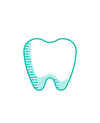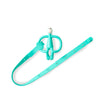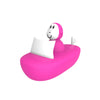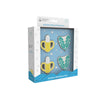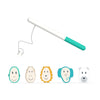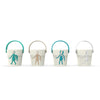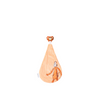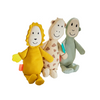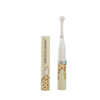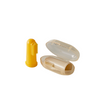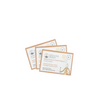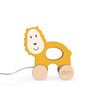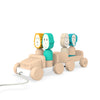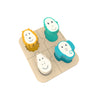Teething: All Your Questions Answered
There are so many questions when it comes to teething and as each child is different, sometimes the answers vary depending on which source you read! When my two little ones were teething, even though they’re sisters I still have exactly the same experience with both of them.
This article attempts to pull together answers to some of the most common questions mum’s and dad’s have when their child is teething. We’ll add to this article constantly as we keep researching parents, health professionals and industry leaders advice on teething.
When do babies start teething?

This varies from child to child so there is no definitive answer, though babies usually start to teeth between 6 and 12 months of age, don’t be surprised if they start at 3 months or even 2 months!
What are the first teeth a baby gets?
As a rule, the lower teeth usually come first in teething babies.
How long do symptoms of teething last?
By the time your child is around 3 years old, they should have all 20 baby teeth (known as “primary teeth”).
Why does it hurt when babies are teething?
A tooth that’s sliding and twisting its way (no matter how slowly or gently) through a soft and sensitive gum makes the gum feel sore and irritable.
Trust me, when they bite down on your finger as you’re trying to get Bonjela in, they are not the only one who’s hurting! That’s exactly why I invented Matchstick Monkey, so I could medicate without getting a finger gnawed off.
Can you get a temperature with teething?
Yes. It isn’t uncommon to find a baby's temperature to be slightly higher when teething. Some experts think this could be to do with saliva but this isn’t proven. A baby produces more saliva than usual when teething which could cause loose stools and a very mild rash. A rash could also be caused by saliva on their bed sheets rubbing on their face your baby is chewing at them. The inflamed and irritated gums may also cause a slight fever. See the next questions for more info on this...
Tip: Remember, anything higher than a low fever and you should call your doctor.
Can sickness be a symptom of teething, can teething cause a cold and can teething cause diarrhea in babies?
As we mentioned in the last answer on getting a temperature; the extra saliva may cause a baby to be sick or their painful gums can put them off eating. They may conversely be comfort eating more than usual which could also make your child vomit. There is, however, no medical research to support the link between vomiting, a rash, colds and diarrhea with teething.
If your baby is stressed with their teething it may mean they could get sick more easily than usual. Stress can stop our immune system functioning as well as it normally does, as cortisol (produced by the body when stressed) can suppress the immune system. This may be one of the reasons that some children become sick during teething.
How can I help my teething baby?
There are loads of ways you can help your teething baby. We recently wrote a blog post on healthy teething solutions for your baby if you’d like to check it out! One great way is to use the Matchstick Monkey. Not only is it fun and safe for kids to hold and chew, it’s made from food grade FDA silicone and is BPA free. It’s also freezer safe and perfectly designed to get medication on those hard to reach gummy areas.
How long will baby be fussy from teething?
This completely depends on the individual baby. Some children don’t get fussy at all when teething, however, others become extremely difficult, upset and fussy with food! The best thing to do is just go with the flow. If your baby is refusing to eat much, their gums might just be very sore. Try cold mushed food like applesauce on a nice cold spoon. This might be soothing and more acceptable for your little one.
What is the best thing for teething?
Again, each child is different so what’s amazing for one child may not work on another. Even if you had something your first child loved, your second child may turn their nose up at it!
Just try to find something soothing for your baby’s pain. This could be something cold, medication, a nice food to gnaw like a rusk or a teether like Matchstick Monkey. Just don’t worry too much if your baby is a bit fussy with their food or is more irritable than usual. Teething is a painful process but it won’t last forever.
Have you got any fail safe solutions to teething? If so, we’d love to hear about them!

